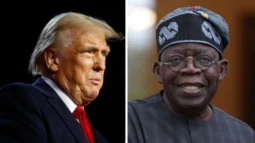Peter Obi, the Labour Party’s 2023 presidential candidate, has repeatedly vowed to serve only a single four-year term if elected president in 2027, framing it as a “sacrosanct” commitment rooted in principled leadership. However, this pledge has sparked intense debate, with critics arguing it is a calculated political maneuver rather than a genuine promise. Accusations of dishonesty have emerged, fueled by Obi’s political history, the realities of Nigerian politics, and skepticism about his motives. Below, we explore why many believe Obi’s one-term proposal lacks credibility and could be seen as misleading Nigerians.
A History of Broken Promises
One of the primary reasons critics question Obi’s one-term pledge is his political track record, which they argue shows a pattern of unfulfilled commitments. Bayo Onanuga, Special Adviser to President Bola Tinubu, labeled Obi a “serial promise breaker” with a “history of reckless, needless lies.” Onanuga pointed to Obi’s defection from the All Progressives Grand Alliance (APGA) to the Peoples Democratic Party (PDP) in 2014, despite earlier assurances that he would remain loyal to APGA. This shift, critics argue, undermines Obi’s claim that his “word is his bond.” Onanuga further noted that Obi sought re-election as Anambra governor in 2010, contradicting his current stance as a one-term advocate, suggesting a willingness to adapt promises for political gain.
Obi’s defenders, including the Labour Party’s National Publicity Secretary Obiorah Ifoh, counter that his tenure as Anambra governor demonstrated integrity, citing his adherence to transparency and accountability, even surviving an impeachment attempt for his principles. However, critics argue that governing a state and navigating Nigeria’s complex federal landscape are vastly different, and past state-level promises do not guarantee federal-level fidelity.
Political Opportunism or Strategic Posturing?
Skeptics, including the Lagos State Chapter of the All Progressives Congress (APC), view Obi’s one-term pledge as a “veiled admission of unpreparedness” and “political opportunism disguised as humility.” APC spokesman Hon. Seye Oladejo argued that Obi’s promise is a tactic to lower expectations, implying he lacks a viable plan to transform Nigeria. The APC contends that Obi’s underwhelming performance as Anambra governor—marked by what they describe as neglected infrastructure and industrialization—casts doubt on his ability to deliver transformative change in just four years.
Reuben Abati, a prominent Nigerian journalist, echoed this sentiment, calling the proposal a “sign of desperation” unlikely to resonate, particularly in Northern Nigeria, where regional grievances and mistrust persist. Abati suggested that Obi’s pledge is a populist attempt to gain favor rather than a realistic policy framework, especially given the North’s expectation of power rotation by 2031. The unwritten zoning principle, which alternates power between Nigeria’s North and South, complicates Obi’s proposal, as a single-term presidency could disrupt expectations of a longer Southern tenure, further fueling skepticism about his sincerity.
Misleading Historical Analogies
Obi has cited global leaders like Abraham Lincoln, John F. Kennedy, and Nelson Mandela to bolster his one-term vow, arguing that impactful leadership does not require long tenures. However, critics, including Onanuga, have debunked these comparisons as misleading. Lincoln served one full term and was re-elected for a second before his assassination, while Kennedy was killed before completing his first term—neither deliberately chose a single term. Mandela, at 81, opted out of a second term due to age, a context far removed from Obi’s situation. Onanuga argued that these references are inappropriate and expose Obi’s attempt to inflate his credibility through false parallels.
By aligning himself with such iconic figures, Obi risks appearing disingenuous, as his political career—while notable—lacks the transformative weight of these global leaders. Critics argue this tactic is more about crafting a narrative of integrity than reflecting a realistic commitment.
The Practicality Problem
Anambra State Governor Chukwuma Soludo, a former Central Bank of Nigeria governor, has been one of Obi’s fiercest critics, questioning the logic of a one-term pledge. Soludo argued that any politician promising a single term “must have some mental problem” and suggested they need a “psychiatric evaluation,” as the Nigerian Constitution allows for two terms. Soludo’s critique highlights a practical issue: Nigeria’s complex challenges— insecurity, economic instability, and governance decay—require sustained effort beyond four years. Critics argue that Obi’s promise is unrealistic, as systemic reforms often take longer, and his pledge could be a convenient exit strategy to avoid accountability for long-term results.
Activist lawyer Deji Adeyanju further dismissed Obi’s vow, stating that even swearing by a shrine would not convince Nigerians, given widespread distrust in politicians. This skepticism is rooted in Nigeria’s political culture, where promises are often made to win votes but abandoned once power is secured. Obi’s insistence that he is “not cut from that cloth” struggles to overcome this entrenched cynicism, especially without a legally binding mechanism to enforce a one-term limit.
The Coalition Conundrum
Obi’s proposal is tied to his role in a newly formed opposition coalition under the African Democratic Congress (ADC), aimed at unseating President Tinubu in 2027. He has stated he would honor a coalition agreement for a single term to align with zoning principles, leaving office by May 29, 2031. However, critics argue this pledge is a strategic move to secure the coalition’s presidential ticket rather than a genuine commitment. The Labour Party itself has distanced itself from guaranteeing Obi’s candidacy, with Obiorah Ifoh noting that the party’s ticket is open and its programs take precedence over individual promises. This suggests that even Obi’s allies view his pledge as a personal stance, not a binding party policy, further undermining its credibility.
Moreover, the coalition’s dynamics introduce uncertainty. If Obi wins and performs well, public or coalition pressure could push him to renege on his vow, as noted by Dr. Victor Mathew, who described such pledges as common political statements meant to attract votes but often “swept under the carpet.” Obi’s own history of switching parties—APGA to PDP to Labour Party—fuels doubts about his commitment to coalition agreements.
Public Trust and Political Realities
Obi acknowledges the “decay in our society” that has made trust scarce, yet his one-term vow struggles to bridge this gap. His supporters, like Amb. Kalu Ofon Emmanuel, argue that his proposal reflects honesty and a focus on public good. However, Nigeria’s political landscape, where cash inducements and ethnic loyalties often sway votes, poses a significant hurdle. Obi’s strong 2023 performance—6.1 million votes, leading in the South—shows his appeal, particularly among youths and the “Obidient” movement. Yet, his limited traction in the North, as highlighted by Abati, and the APC’s claim that he lacks a national coalition, suggest his one-term promise may not resonate broadly enough to win.
Furthermore, Obi’s critics argue that his pledge sidesteps the deeper issue of governance capacity. Promising a single term does not address how he would tackle Nigeria’s entrenched problems in just four years, especially without a robust national structure. The APC’s Oladejo emphasized that Nigerians need leaders focused on “bold reforms” rather than “political shortcuts.”
Conclusion
Peter Obi’s one-term presidency proposal has ignited a firestorm of criticism, with detractors arguing it is a deceptive tactic to gain political favor rather than a credible commitment. His history of shifting political allegiances, questionable historical analogies, and the practical challenges of transforming Nigeria in four years fuel accusations of dishonesty. While Obi’s supporters view his pledge as a mark of integrity, skeptics, including political heavyweights like Soludo and Onanuga, see it as a desperate bid to appeal to a disillusioned electorate. As 2027 approaches, Obi’s ability to convince Nigerians of his sincerity will depend on demonstrating a clear, actionable plan that transcends rhetoric—a challenge his one-term vow alone cannot meet. Whether this promise resonates or falls flat will hinge on his ability to rebuild trust in a nation weary of unfulfilled political promises.







